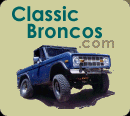So slowly continuing build, and need to make parts decisions. Dedicated off road build for West trails bucket list trip, BP 306, C4 to Atlas II, Winters shifter, Detroit lockers, Painless package, blank dash panel. So utility and reliability my focus, not originality. No need for useless items on this build, just something to break or not work. Again,my disclaimer: I have no (outside South) off road experience. Here goes.
1. Heater. Some electric option better than OPE ?
2. Wipers. Know I need but want best off road option.
3. Factory warnings. What suggest as minimum ? I intend to cover major systems. But Painless has a lot of circuits I don’t think I need.
4. Switches. Since have blank dash, leaning toward toggle , etc unless otherwise recommended.
5. Coolers. Radiator has input but leaning toward utilizing it plus dedicated trans and oil coolers. It gets hot in AL. Overkill ?
6. Custom shifter console. Hard way: Build and mount in more ergonomic location ? Easier way: Or fab existing tunnel ? Other way ?
7. On board welder. Good or gimmick ?
8. Air. Compressor or tank ? And I use bottled gases on farm.
9. Yokes. Using free and used parts, think I got 1310 and 1350 on rear shaft. Custom shaft or change now ?
10. Expendables. Buy extras now while biting bullet ? If so, what recommendations? Driveshafts, axles, etc
11. Other.
Thanks.
1. Heater. Some electric option better than OPE ?
2. Wipers. Know I need but want best off road option.
3. Factory warnings. What suggest as minimum ? I intend to cover major systems. But Painless has a lot of circuits I don’t think I need.
4. Switches. Since have blank dash, leaning toward toggle , etc unless otherwise recommended.
5. Coolers. Radiator has input but leaning toward utilizing it plus dedicated trans and oil coolers. It gets hot in AL. Overkill ?
6. Custom shifter console. Hard way: Build and mount in more ergonomic location ? Easier way: Or fab existing tunnel ? Other way ?
7. On board welder. Good or gimmick ?
8. Air. Compressor or tank ? And I use bottled gases on farm.
9. Yokes. Using free and used parts, think I got 1310 and 1350 on rear shaft. Custom shaft or change now ?
10. Expendables. Buy extras now while biting bullet ? If so, what recommendations? Driveshafts, axles, etc
11. Other.
Thanks.










